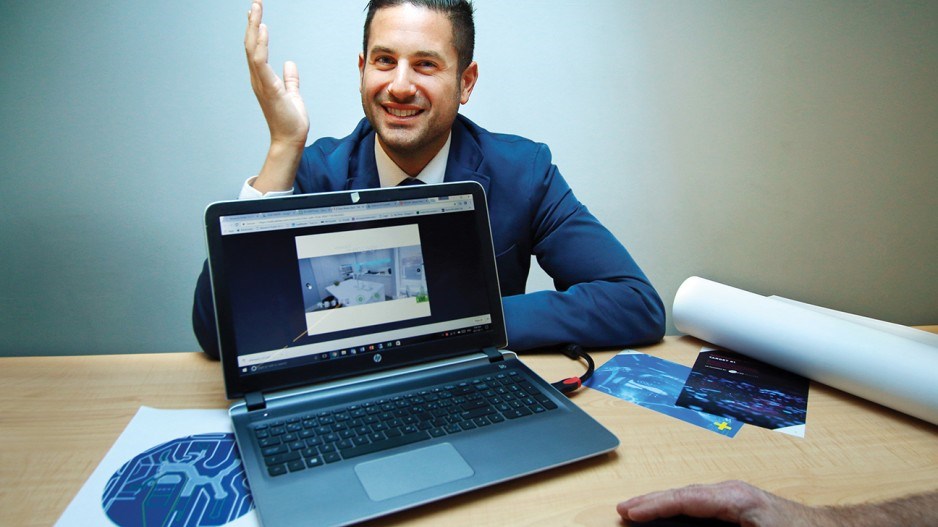For Metropolitan (MET) Fine Printers president Nikos Kallas, the 2008-09 recession turned out to be a blessing in disguise.
The company, owned by the Kallas family, suffered a 20% sales drop when the global recession took hold. Clients slashed marketing budgets trying to stay afloat, which meant that MET –which specializes in everything from digital and commercial printing to banner and packaging for communication purposes – was hit especially hard.
Kallas, who assumed leadership of the company in 2011 after his father retired, said the downturn hurt the company’s bottom line, but it also created new opportunities and seeded a new corporate culture for the Vancouver company.
“We felt [the economic recession] really quickly, so we had to start diversifying into different things,” he said. “This led us to start experimenting with things we might not have previously looked at.”
Kallas said MET started pitching new untested products for marketing and communications. Some worked; some didn’t. The net result was a complete overhaul of how the company –founded in 1977 – does business. It will pretty much try anything now, Kallas said.
“Now if somebody wants something printed on a couch,” said Kallas, “we’d find a way to get it printed on a couch.”
Founded in 1977, MET (No. 3 on BIV’s list of the biggest commercial printers in Metro Vancouver, page 26) has 120 employees and last year posted $28 million in revenue.
According to the federal government’s State of the Canadian Printing Industry 2011 report, the sector went through a “significant upheaval” during the downturn and the rise of digital and ancillary services.
The report noted that 60% of the commercial printing companies in Canada invested in digital technology during the recession and that both profits and employment levels for businesses have dropped “significantly” since the downturn.
MET embraced new technology like augmented and virtual reality (VR), which has been a hit with Vancouver’s real estate community as the industry looks for new and unique ways to sell development units in a competitive market.
Deren Akinci, a senior project manager for Rennie Marketing Systems, recently worked with MET on a multi-family, mixed-use development in Richmond near the Olympic Oval. Akinci said they built a one-bedroom and two-bedroom show suite at the presentation centre, but there wasn’t enough space to showcase any of the three-bedroom units. So MET built a virtual three-bedroom suite that allowed users to tour entire suites.
Akinci said Kallas and MET built the virtual space down to the last detail, which allowed people to get a feel for the homes via a VR headset.
“Building it in VR also allowed the user to change the colour of the LED lighting featured in the kitchens,” added Akinci. “This level of realism and customization helped potential buyers visualize the volume more easily than reading them from 2D-plans and the user interface created by the MET team made it very accessible and easy to use.”
Kallas said MET also worked with other real estate developers using augmented reality to allow users to customize apartments with finishes and furniture before trying it in real life.
MET’s client base throughout its four-plus decades includes Starbucks (Nasdaq:SBUX), Vancouver International Airport, Visa (NYSE:V), Nike (NYSE:NKE), TED Talks and the U.S. Olympic Committee. The company has also racked up a long list of awards, including 31 Bennys (an annual Printing Industries of America awards event).
Kallas said the culture change the company underwent during the downturn now factors in to every client they deal with.
“We’re always looking for that next thing to offer.”




